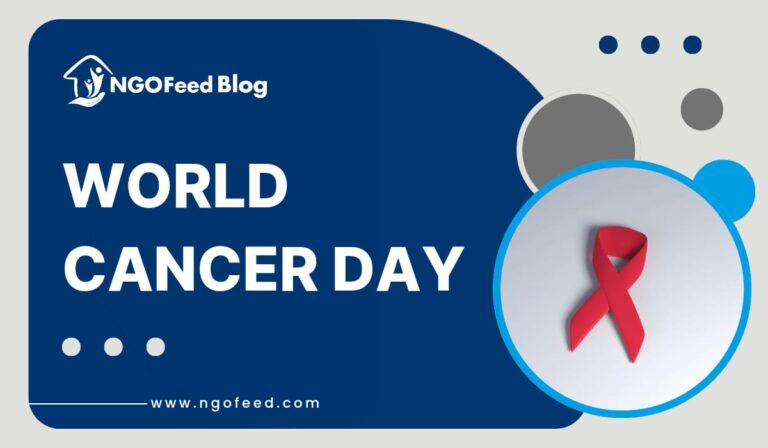World Consumer Rights Day, celebrated every year on March 15th, is an important event for enhancing global awareness regarding consumer rights and needs. Here’s a summary of essential information:
Purpose:
- The day seeks to promote the fundamental rights of all consumers.
- It acts as a platform to advocate for the respect and protection of these rights.
- It also offers a chance to oppose market abuses and social injustices threatening these rights.
Table of Contents
Historical Significance
The day honours President John F. Kennedy’s speech to the U. S. Congress on March 15, 1962, when he officially acknowledged consumer rights.
Key Aspects for World Consumer Rights Day 2025:
The theme for 2025 is “A just transition to sustainable lifestyles. “This theme stresses the necessity of making sustainable and healthy choices available and affordable to all consumers. It also underscores the importance of ensuring that this transition maintains basic consumer rights. The goal is to encourage sustainable lifestyles across key sectors such as food, water, energy, and more.
Organizing Body:
Consumers International plays a crucial role in overseeing and promoting World Consumer Rights Day.
In summary, World Consumer Rights Day serves as a significant reminder of the necessity of consumer protection and empowerment in a constantly evolving world.
Also Read: Role of NGO in Consumer Protection
1. Introduction: The Global Tapestry of Consumer Advocacy
World Consumer Rights Day is not just a yearly event; it’s an active, developing movement that signifies the interconnected nature of our global economy. It is a day that surpasses geographical borders, bringing together consumer advocacy groups, governments, businesses, and individuals in a common pledge to fairness and transparency. This day recognizes that consumers do not merely receive goods and services; rather, they are proactive participants in influencing the market. It centres on empowering individuals to seek accountability, ensuring their voices resonate, and advocating for a marketplace that emphasizes ethical practices and sustainable consumption. The activities held on this day range from protests against unjust market practices, educational workshops, to government policy announcements, all of which contribute to a worldwide conversation regarding consumer empowerment.
2. Historical Background: From Market Vulnerability to Consumer Sovereignty
Prior to the mid-20th century, consumer rights were largely ambiguous, leaving individuals open to exploitation and dangerous products. The transition towards consumer sovereignty was fuelled by an increasing awareness of the power disparity between businesses and consumers. President Kennedy’s 1962 address represented a pivotal moment, outlining the essential rights that should be guaranteed to every consumer. This address resonated worldwide, igniting the establishment of consumer protection agencies and legislation across various nations. Consumers International, through its global network, played an essential role in building upon Kennedy’s vision, advocating for a more extensive framework of consumer rights that tackled issues such as access to necessities and environmental safeguarding. The historical perspective serves as a reminder that consumer rights are not fixed; they are continually shaped by persistent advocacy and societal transformation.
3. Key Consumer Rights: The Pillars of Equitable Commerce
- The Right to Safety (Expanded): This extends beyond mere physical safety to encompass data security, food safety, and product dependability. For instance, stringent testing standards for pharmaceuticals and automobiles are vital for guaranteeing consumer safety.
- The Right to Be Informed (Expanded): Clear and transparent labelling, truthful advertising, and easy access to information regarding product ingredients and usage are essential. This includes the fight against “greenwashing,” where companies make deceptive claims about their environmental practices.
- The Right to Choose (Expanded): This entails encouraging a competitive marketplace where consumers can access a variety of products and services at equitable prices. Laws and regulations against monopolies are crucial for preventing market dominance and ensuring consumer choice.
- The Right to Be Heard (Expanded): Efficient complaint systems, consumer feedback channels, and public forums are crucial for making sure that consumer issues are addressed. This encompasses empowering marginalized groups and guaranteeing that their voices are acknowledged.
- The Right to Satisfaction of Basic Needs (Expanded): This involves access to affordable food, clean water, healthcare, and housing. Governments and international organizations have a vital role in ensuring that these fundamental needs are satisfied, particularly for at-risk populations.
- The Right to Redress (Expanded): This encompasses access to legal solutions, dispute settlement systems, and compensation for losses. Class-action lawsuits and consumer arbitration serve as examples of redress systems.
- The Right to Consumer Education (Expanded): This includes financial literacy, digital literacy, and knowledge of consumer rights. Schools, community organizations, and government entities are essential in delivering consumer education initiatives.
- The Right to a Healthy Environment (Expanded): This entails access to clean air and water, sustainable resource management, and protection from environmental threats. This right is increasingly related to climate change and the necessity for sustainable consumption.
4. The Digital Age and Consumer Rights: A Frontier of Challenges and Opportunities
The digital era has revolutionized the marketplace, generating new possibilities for consumers but also introducing significant difficulties. E-commerce sites provide convenience and access to a vast array of products, yet they also raise issues regarding data privacy, online scams, and algorithmic discrimination. Social media platforms can facilitate consumer advocacy, but they may also disseminate misinformation and false news. Data privacy laws, such as GDPR, are vital for safeguarding consumer information in the digital era. The emergence of AI and automation raises worries about algorithmic transparency, job loss, and potential bias. Consumers must be digitally knowledgeable and proactive in safeguarding their online privacy and security.
5. Sustainability and Consumer Rights: Forging a Path to Responsible Consumption
Consumers are progressively insisting on products and services that are eco-friendly and ethically manufactured. This transition toward sustainable consumption is motivating businesses to implement responsible practices. The idea of a circular economy, in which products are created for reuse and recycling, is gaining momentum. Fair trade practices, which guarantee that producers are compensated fairly for their products, are also growing in importance. Consumer awareness initiatives are promoting sustainable products, minimizing waste, and fostering environmentally friendly lifestyles. The effects of climate change on consumer rights, such as access to vital resources, are becoming increasingly evident.
6. Global Data and Statistics: Shedding Light on Consumer Concerns
- Cybercrime data, including statistics from the IC3, demonstrates the substantial financial and personal harm inflicted by online fraud.
- Data privacy research, such as studies from Pew Research Centre, emphasizes the escalating public concern regarding the use of personal data.
- Market research analyses, like those from Nielsen, indicate the growing consumer interest in sustainable products.
- OECD findings on counterfeit merchandise underscore the economic and safety ramifications of this worldwide issue.
- Research on online reviews illustrates the considerable impact of consumer feedback on buying choices.
- Consumer Protection in Practice: Case Studies and Collaborative Efforts
- The GDPR established by the EU has created a worldwide benchmark for data privacy safeguards.
- The FTC’s enforcement actions aimed at misleading advertising and unfair trade practices help to defend consumers in the U. S.
- Consumer advocacy organizations in developing nations are striving to enhance consumer protection legislation and increase awareness of consumer rights.
- Joint initiatives among governments, businesses, and consumer groups are vital for tackling intricate consumer challenges.
8. The Role of Education and Awareness: Fostering a Culture of Informed Consumerism
Consumer education is crucial for empowering individuals to make knowledgeable choices and safeguard their rights. Schools, community organizations, and government bodies play a significant role in implementing consumer education initiatives. As consumers increasingly need to navigate the complexities of the online marketplace, digital literacy is becoming more important. Awareness initiatives can enhance public understanding of consumer rights and responsible consumption. Financial literacy initiatives, for instance, assist consumers in making informed financial choices and steering clear of exploitative lending practices.
9. The Future of Consumer Rights: Navigating the Unmarked Areas
Emerging technologies, global trends, and changing consumer expectations will Mold the future of consumer rights. AI and automation, the sharing economy, global supply chains, and climate change all introduce new challenges and opportunities for consumer protection. The growth of personalized advertising and “deepfakes” presents a fresh pathway for consumer deception. International cooperation and collaboration will be crucial for overcoming these obstacles and ensuring that consumer rights are safeguarded in the 21st century.
10. Conclusion: A Call to Action for a Just and Sustainable Marketplace
World Consumer Rights Day serves as a rallying point for a fair and sustainable marketplace. It reminds us that consumers are not merely purchasers but also citizens endowed with rights and responsibilities. By advocating for just and transparent markets, enhancing sustainable consumption, and empowering consumers through education, we can build a more equitable and just society. The future of consumer rights relies on our collective dedication to upholding these values and adapting to the constantly shifting landscape of the global marketplace.









